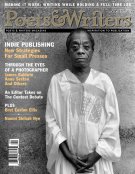This month the Library of America, the nonprofit publisher founded in 1979 to “preserve our nation’s literary heritage,” will release the first two installments of a planned eight-volume edition of Philip Roth’s collected fiction. The seventy-two-year-old Pulitzer Prize winner is only the third living writer to receive the honor. Saul Bellow was eighty-seven when a single volume of his writing was released by the Library of America in 2003; Eudora Welty was ninety when her work was published in 1998.
The new collections of Roth’s work are the latest achievements in a literary career that spans half a century.
The first volume, Philip Roth: Novels and Stories 1959–1972, covers the beginning of the writer’s career, and includes Goodbye, Columbus and Five Short Stories, his 1959 debut collection, for which he won a National Book Award; and Letting Go, his first full-length novel, published in 1962. The second volume, Philip Roth: Novels 1967–1972, includes When She Was Good (1967), the best-selling Portnoy’s Complaint (1969), Our Gang (1971), and The Breast (1972), all originally published by Random House.
Serving as Roth’s editor is Ross Miller, a professor of English and comparative literature at the University of Connecticut, who was selected by Roth to write his biography. Miller, a longtime associate of Roth, and nephew of playwright Arthur Miller, is currently writing the biography, scheduled to be published in 2009 or 2010 by Houghton Mifflin. Miller declined to be interviewed for this article, stating that questions about the process of compiling the Library of America volumes “really have nothing to do with the fiction and are a distraction from the main subject.”
But the release of the volumes, as well as Roth’s unique position as a “collaborator” in their production, has gained attention in publications ranging from Variety to the Guardian. Max Rudin, Library of America’s publisher, says Roth is an “enthusiastic partner” in a project that does not usually involve the input of the author. To compile the typical collection, Library of America editors research the author’s various editions and other materials to establish the authoritative text. But in Roth’s case, Rudin says, “we have an author who can actually tell us.”
In fact, Miller and Roth are working on the Library of America volumes and the biography simultaneously. Meeting as “a sort of reading group of two,” Rudin says, the author and editor are rereading Roth’s books in order of publication and discussing them. “They’re establishing the definitive text for our use, and at the same time he gets [to hear] Philip talk about the historical and creative circumstances for the [biography] as they go through,” he says.
Rudin is of two minds about the process of working with a living author. “On the one hand, it’s wonderful to have a living author as a partner in the publication process,” he says. “And on the other hand, it’s daunting, because living authors can call you and tell you what they like and don’t like about what you’re doing.” Still, he says, “I don’t get very many chances to do that. You can’t talk to Henry James about The Portrait of a Lady.”
The new collections of Roth’s work are the latest achievements in a literary career that spans half a century. Roth’s most recent novel, The Plot Against America (2004), was a finalist for the National Book Critics Circle Award for Fiction, the Koret Jewish Book Award, and the Man Booker International Prize. Other recent books include the American trilogy novels: The Human Stain (2000), I Married a Communist (1998), and American Pastoral (1997), for which Roth won the Pulitzer Prize. In 1998, Roth received the National Medal of Arts at the White House, and in 2002 he received the highest award of the American Academy of Arts and Letters, the Gold Medal in Fiction, previously given to John Dos Passos, William Faulkner, and Saul Bellow, among others. He has twice won the National Book Award, the PEN/Faulkner Award, and the National Book Critics Circle Award.
The first two Library of America volumes, Rudin says, “give readers a glimpse back at the cultural turmoil of the ’60s, out of which the real Philip Roth emerged, the real literary persona…. We can look back at the comic, outrageous Philip Roth, and evaluate the work from that perspective.” A third volume, scheduled for release in fall 2006, will include My Life As a Man (1974), The Great American Novel (1975), and The Professor of Desire (1977). More volumes will be published over the next eight years, the last to be released to mark Roth’s eightieth birthday year, in 2013.
Reaction to the books from Roth scholars has been enthusiastic. Derek Parker Royal, the president of the Philip Roth Society and a literature professor at Texas A&M University, Commerce, says it makes perfect sense that Roth should be chosen by the Library of America. “Roth has never taken the safe path,” he says. “Although he will probably never be chosen for inclusion in Oprah’s omnipresent book club, he demands our attention.” In choosing Roth for its ongoing project, Royal says, the publisher “demonstrates that American literature still has its share of breathtaking mischief makers—and thank God for that.”
Mark Shechner, an English professor at the State University of New York, Buffalo, and author of Up Society’s Ass, Copper: Rereading Philip Roth (University of Wisconsin Press, 2003), says that, despite having “a kind of dark, institutional heft to them,” the Library of America volumes give Roth the status of “a living classic.”
“Roth has lived up to anyone’s reasonable expectations—save maybe the Nobel Prize judges—of being what we think a literary classic should be,” he says. “Good for Roth.… America has decided to give the guy a big celebrity hug after all.”
Daniel Nester is the author of God Save My Queen and God Save My Queen II, both published by Soft Skull Press. He edits Unpleasant Event Schedule.








